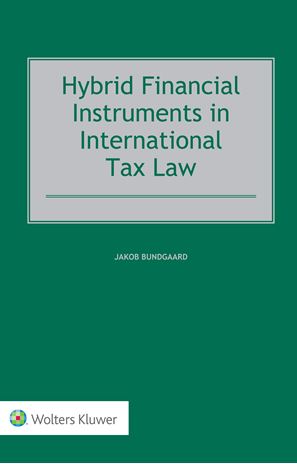
Hybrid Financial Instruments in International Tax Law examines the tax issues affecting the use of hybrid financial instruments (HFIs). Financial innovation allows companies and other entities that wish to raise capital to choose from a myriad of possible instruments that can be tailored to meet the specific business needs of the issuer and investor. However, such instruments put increasing pressure on a question that is fundamental to the tax and financial systems of a country – the distinction between debt and equity. This book analyzes the treatment of HFIs – which lie somewhere along the debt-equity continuum, but where exactly depends on the terms of the instrument as well as on applicable laws – under both domestic law and tax treaties. Key jurisdictions, including the EU, some of its Member States, and the United States, are covered.
What’s in this Book:
Advocating for a broader scope of application of HFIs as part of the financing of companies in Europe alongside traditional sources of debt and equity financing, the book addresses such issues and topics as the following:
How this will help you:
This book helps the actual or potential users of HFIs gain insight into the capacity and tax implications of HFIs. This book not only discusses whether existing legislation is sufficient to handle the issues raised by international HFIs but also provides an in-depth analysis of the interaction between corporate financing and tax law in the light of today’s financial innovation. This book, thus, serves as an indispensable tool for academics and policymakers, corporate executives and their counsel in augmenting their understanding of a complex and constantly changing area of international taxation landscape that is currently coming into view, and thereby enables them to confidently design and use HFIs that comply with national and EU law, tax treaties, and OECD guidelines.